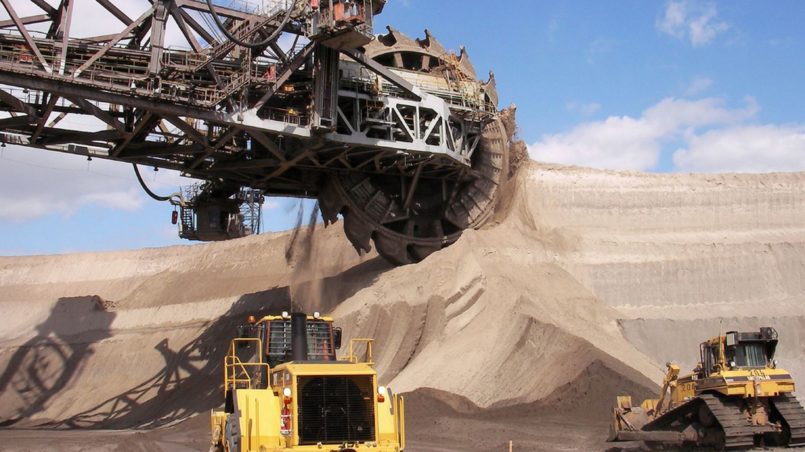Time for an Ecological Upgrade

On Friday, 23rd June, I attended a talk at the Haus der Europäischen Union (House of the European Union) in Vienna on the topic: “Raw materials of the digital future; time for an ecological upgrade“.
At the focus of the event were, therefore, the possibilities for a more just and more environmentally-friendly raw materials policy. The speakers were: Jakob Wieser, managing director of Dreikönigsaktion, a development agency of the Catholic Children’s Movement of Austria; Karin Küblböck, a senior researcher at Österreichischen Forschungsstiftung für Internationale Entwicklung (ÖFSE) (the Austrian Foundation for Development Research); Leida Rijnhout, programme coordinator at Friends of the Earth Europe, an environmental network in Europe and Héctor Córdova from the Fundación Jubileo, a large workers’ movement in Bolivia. The final speaker was Sophia So, member of the association, Students and Scholars Against Corporate Misbehaviour from Hong Kong on the abuses in the working conditions in the production of electronics in China.
Jakob Wieser spoke about a temperature increase of three degrees over the next 30 years, despite the Paris Climate Agreement and that even the German Economic Council, which is considered to be conservative, is talking about the necessity of a transformation. Jakob Wieser concluded with these words and gave the floor to the next speaker, Karin Küblböck, who raised global aspects of the digital future.
In electronic cars, the batteries contain 9-30 kg lithium and 10 kg cobalt. 70% of the lithium produced globally comes from Chile, Bolivia and Argentina. 60% of the needs of the global market for cobalt is met by the Congo.
In the Raw Materials Initiative of the European Commission, the aim is to overcome obstacles such as export restrictions in order to guarantee unlimited access. However, because there are now only global investors, this has simplified the position of export countries. There are an increasing number of conflicts with, and pressure on, governments from the civil society and local communities, for example, resistance to projects, battles for higher income, improved environmental protection, compensation for damage and the creation of workplaces. Proposals for reform include changes to the trade and investment policy, tax harmonisation and the creation of value locally as well as considering the development of local alternatives to mining. At this point Karin Küblböck ended her talk and the next speaker was Leida Rijnhout, who began by speaking about the EU directives and the changes to the system as regards raw materials.
In the case of a river, this could, for example, be fish. If the river runs dry or is polluted, it can no longer provide people with fish. The current growth model is, therefore, according to the OSCE (Organization for Security and Co-operation in Europe), defective. The current economic system is only geared towards an increase of the gross domestic product which is linked to consumption. We have a monetary system which is based on the granting of credit and debts in order to enable further consumption. Social and environmental costs, however, grow more than the gross domestic product; and because of this, the economic and finance system have to be redesigned.
Héctor Córdova then spoke about the consequences of mining in Bolivia, the positive being the employment in cooperatives, financial liquidity and the availability of foreign currencies. The disadvantages are, however, much more significant.
His national workers’ movement, therefore, demands that importing countries support Bolivia in the development of processing plants and that the repair of defective equipment is promoted more. It also demands a regulation which would oblige European countries to adhere to human rights’ and environmental standards, also outwith the European Union.
Héctor Córdova ended his talk with these demands and gave the floor to Sophia So, who reported on the working conditions in the production of electronics in China.
Social isolation, draconian punishments and inhuman workloads for a wage which does not cover living costs are still the order of the day, stated Sophia So about Foxconn, the world’s largest distributor of electronics with one million employees in China alone. Company managers in companies such as Apple, Hewlett Packard, Sony and Motorola, which buy electronic parts from Foxconn, accept that, for low production costs, the supplier keeps the wages of the workers low by all means.
An increase of the basic wage and measures to reduce overtime are a token gesture – strict surveillance and humiliating punishments remain. In order to save even more costs, in the last five years, over 100,000 workers have been transferred to the northern and central areas of China, where wages are even lower than in the coastal regions.
At this point the event ended. I had the impression that the technical advances currently occur at the cost of a step backwards in relation to social justice.
Credits
| Image | Title | Author | License |
|---|---|---|---|
 |
Titelbild-Excavator | Martin Roell | CC BY-SA 2.0 |
